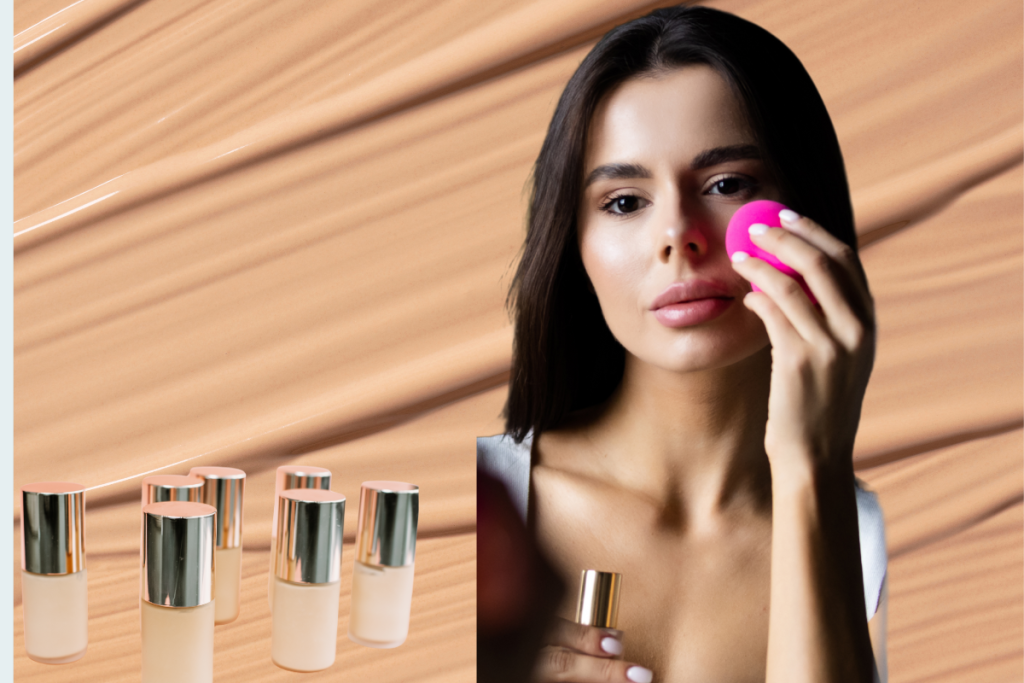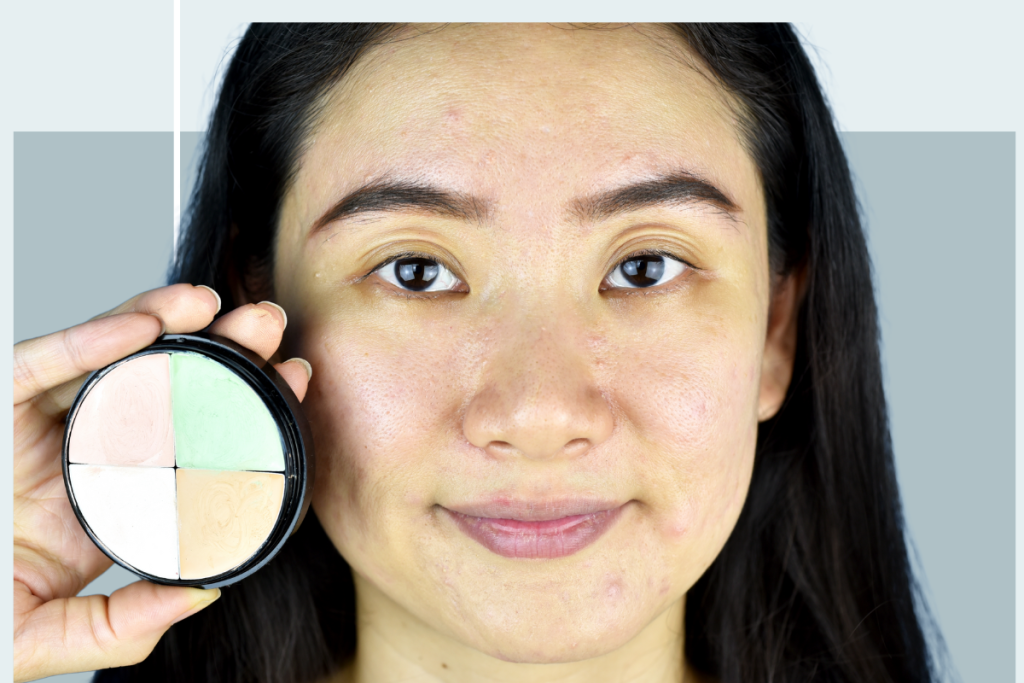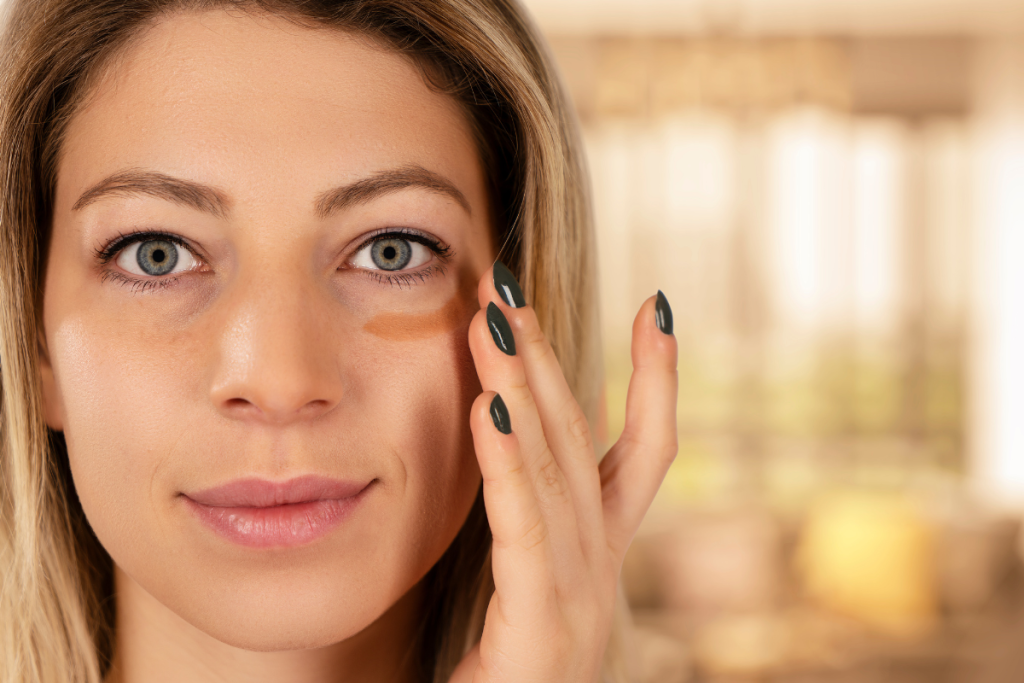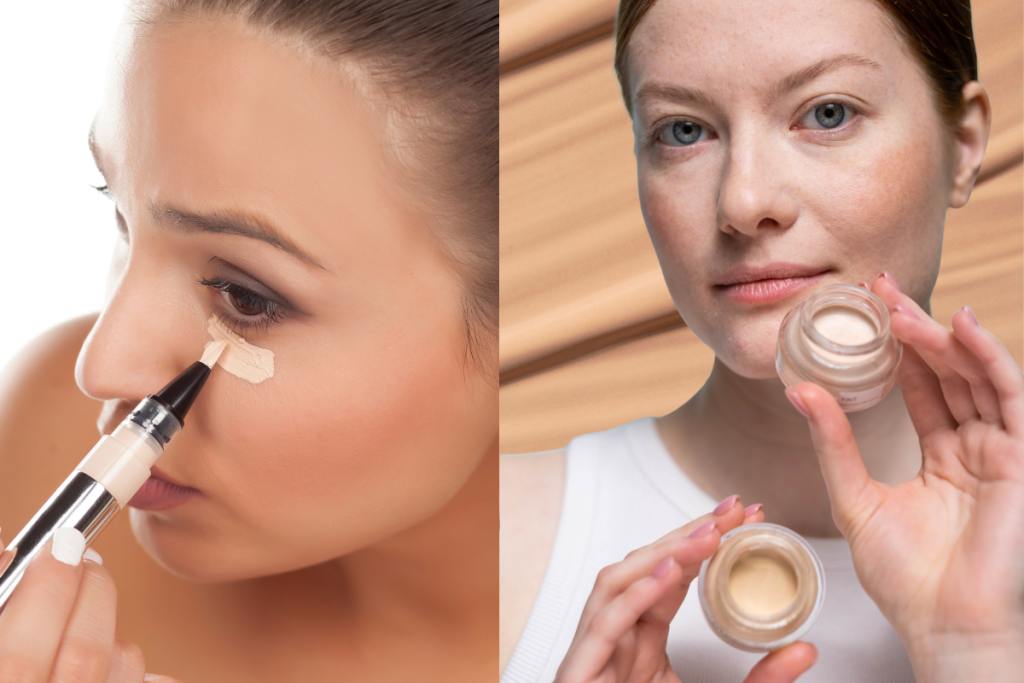A right concealer is what helps the complexion to become perfect and flawlessly natural-looking. The application of concealer under the eye area, helps brighten that area and helps to conceal spots. Selecting the ideal concealer shade could be tough for one since they come in too many varieties. Here is the guide that shall teach you the process of picking the correct concealer shade to your skin, based on tone, undertone, and more.
How to Choose the Right Concealer for Perfect Coverage

Your concealer should blend smoothly into your skin while covering dark circles, blemishes, and brightening certain areas. To find the right one, consider your skin’s undertone, the reason you’re using it, and how well it matches your foundation.
Know Your Skin Tone

Your skin tone is the general color of your complexion, ranging from fair to deep. When picking up a concealer, make sure it provides the right color suited for your skin tone. Concealers are usually one or two shades lighter than foundation because brightening the eyes, and sometimes the cheeks, but the same shade as the foundation in under-eye spot concealing.
Know Your Undertone
Knowing your undertone is essential in picking the right concealer shade. There are three types of undertones:
Cool Undertones: Skin tends to have a slightly pink, red, or blue tint.
Warm Undertones: Golden, yellow, or peachy colors are present in the skin.
Neutral undertones have a balance of both warm and cool shades.
Avoid an unnatural or ashy appearance by choosing a concealer that has a right undertone.
Choosing the Best Concealer for Various Uses

1. Dark Circles
For under-eye dark circles, choose a concealer that is one to two shades lighter than your foundation with a peach or orange undertone to counteract blue or purple discoloration.
2. Covering Blemishes and Acne Marks
When covering blemishes, pick a concealer that matches your skin tone exactly. A full-coverage, matte-finish concealer works best for hiding acne scars and redness.
3. Brightening and Highlighting
Brightening the face Apply a concealer that is one to two shades lighter than the foundation directly onto the high points of your face, that is, on the under-eye area, The middle of the nose and the center of the forehead.
4. Contouring
To contour, use a concealer two shades darker than your foundation and directly apply it onto the hollows of the cheeks, the jawline, and the temples so as to provide definition and depth.
Testing and Matching the Right Concealer Shade

1. Swatch on Your Jawline
Testing the concealer on your jawline ensures that the shade matches both your face and neck, preventing an unnatural look.
2. Blend Well
After swatching, blend the concealer into your skin to see if it disappears or provides the desired level of coverage.
3. Check in Different Lighting
Test your concealer in natural and artificial lighting to ensure it looks flawless in all settings.
4. Match Your Concealer to Your Foundation
Your concealer should work well with your foundation. If your foundation has a warm undertone, choose a warm-toned concealer to keep your makeup looking natural and even.
5. Try a Shade Wheel
Using a color-correcting concealer based on the color wheel can help neutralize specific skin concerns. For example:
Peach/orange concealer neutralizes dark circles.
Green concealer reduces redness from acne.
Yellow concealers give life to dull skin.
Selecting the Perfect Concealer Texture

1. Liquid Concealer
Liquid concealer is versatile and suitable for all skin types. It gives buildable coverage, perfect for circles under the eyes and making highlights.
2. Cream Concealer
Cream concealers provide higher coverage. They are perfect for dry or mature skin, and they’re also great at covering blemishes and dark spots.
3. Stick Concealer
Stick concealers are perfect for full coverage, and can be applied anywhere on the go. They do well with spot concealing and highlighting.
4. Color-Correcting Concealer
Color-correcting concealers help balance uneven skin tones. Apply them before your foundation and regular concealer to create a smooth, even look.
Conclusion
Right concealer shade and formula make all the difference for you in the makeup routine. Once you understand your skin tone, undertone, and coverage requirements, it will be very easy to pick up the concealer that makes your face flawless. Always test and blend concealer for a seamless, natural look.
